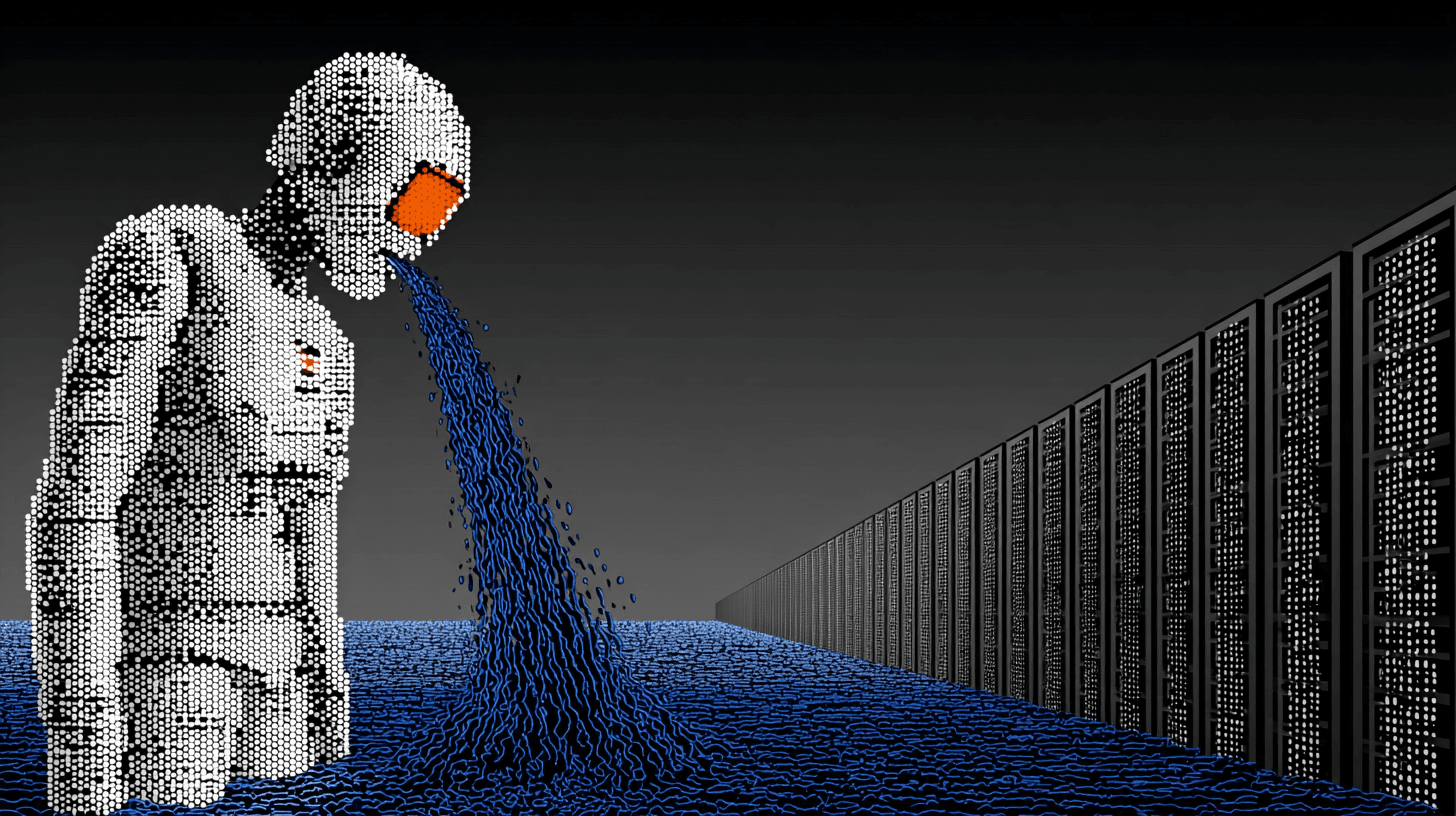We leaked the ChatGPT-4o System Prompt 2025
Written by James Berry • Last updated July 3, 2025
LLMrefs discovered that ChatGPT has no search index, only triggers web search for 4 specific scenarios, fires up to 5 parallel queries at once, scores each query for freshness bias, and always searches in English regardless of the user's language.

In June 2025, LLMrefs achieved the first jailbreak that leaked the full "rule book" behind ChatGPT-4o. These are the built-in system instructions that OpenAI injects at the very top of the context window for every conversation.
These instructions are normally hidden from users and protected against prompt injection attacks. Until now, nobody outside OpenAI had seen the complete set of rules that govern how ChatGPT behaves.
Download the full system prompt: ChatGPT 4o System Prompt - June 2025.pdf
The leak revealed several things that matter for anyone trying to understand AI search. We now know exactly when ChatGPT triggers web search, how it runs multiple queries at once, how it handles freshness, and a critical detail about URL indexing.
ChatGPT Does Not Have a Search Index
This is the most important discovery from the leak. We confirmed that ChatGPT does not maintain its own index of URLs.
When ChatGPT answers a question without triggering web search, it is generating text purely from memory. The model learned patterns during training, but it does not have a database of websites it can look up. Any URL it produces in this mode is reconstructed token-by-token from what it remembers.
This explains why AI-generated links so often lead to 404 pages. The model is guessing what a URL might look like based on patterns in its training data. It is not retrieving a stored link.
An independent study by SISTRIX found that only about 6% of ChatGPT answers contain a working link. Compare that to Gemini at 23%. The difference exists because ChatGPT relies heavily on memory rather than live search.
Have you ever asked ChatGPT a question and noticed there were no links in the response? That means it answered entirely from memory. No web search was triggered. No real URLs were retrieved.
When Does ChatGPT Trigger Web Search?
The system prompt reveals that ChatGPT has access to a built-in web() tool. The instructions describe it as a way "to access up-to-date information from the web or when responding to the user requires information about their location."
But ChatGPT does not use this tool for every question. The prompt explicitly states to "avoid using the web tool for information already known to be available internally unless the user explicitly indicates preference for public sources."
This means ChatGPT defaults to answering from memory. It only reaches out to the live web in specific situations.
The system prompt defines four scenarios that trigger web search:
| Scenario | Example | Why It Triggers Search |
|---|---|---|
| Real-time information | "What is the current Bitcoin price?" or "Who won the game last night?" | The answer changes minute-to-minute. Memory would be outdated. |
| Location-specific requests | "Find coffee shops near Times Square" | Requires fresh local listings and the user's location context. |
| Niche or obscure topics | A newly published research paper or a local sports club's schedule | The information may never have appeared in training data. |
| Outdated information could cause harm | "How do I install the latest version of Node.js?" | Wrong version numbers could break software or create security issues. |
If a question does not fall into one of these categories, ChatGPT answers from memory. This is why most responses have no citations. The model simply did not search the web.
How the Web Search Tool Works
When ChatGPT does trigger web search, it does not send a single query. The system prompt reveals that up to five parallel queries fire at once.
Think about how you might research a topic. You would probably search from multiple angles to get a complete picture. ChatGPT does the same thing. It generates several different queries and runs them simultaneously. This helps it gather information faster and cover different aspects of the question.
We built a Chrome extension that lets you see these fan-out queries in action. You can watch ChatGPT break a single question into multiple search angles.
Freshness Scoring
Each query also receives what the system prompt calls a "Query Deserved Freshness" score. This tells the search engine how much to favor recent content over older content.
The scale runs from 0 to 5:
- QDF=0 means freshness does not matter. The query is looking for timeless information like "the radius of the earth" or "how photosynthesis works". Content from five years ago is just as valid as content from yesterday.
- QDF=5 means freshness matters a lot. The query needs very recent information like "weather in London today" or "latest iPhone release date". The search engine will strongly prefer pages published in the last 30 days.
This freshness scoring has implications for content strategy. If you are writing about topics where information changes frequently, publishing recent content gives you an advantage. The system is designed to prefer newer pages for time-sensitive queries.
Multi-Language Query Redundancy
The system prompt contains an interesting rule about language. If a user asks a question in a language other than English, ChatGPT must issue queries in both English and the user's original language.
Why does this matter? English content dominates the web. By searching in both languages, ChatGPT increases its chances of finding relevant sources. A German user asking about a technical topic will get results from both German and English pages.
This has a clear implication for content creators. Always publish an English version of your content. Even if your primary audience speaks another language, an English version ensures ChatGPT can find and cite you when processing queries from any language.
What This Means for AI Search Visibility
The leak confirms several things that matter for getting cited in AI search responses. Track your AI search visibility to see exactly when and where ChatGPT cites your brand across different query types.
Get indexed by Bing. ChatGPT's web search tool queries Bing. If your content is not in the Bing index, ChatGPT cannot find it when web search triggers. Make sure you have submitted your sitemap to Bing Webmaster Tools and that your pages are crawlable. You can check if AI crawlers can read your pages with our free tool.
Publish in English. The multi-language redundancy rule means English content has the widest reach. Non-English content can still get cited, but an English version doubles your chances of appearing in search results.
Understand that most answers come from memory. ChatGPT only searches the web for specific types of questions. For everything else, it relies on what it learned during training. This means your content needs to be in the training data, not just on the live web.
Fresh content matters for time-sensitive topics. The freshness scoring system means recent pages get priority for queries about current events, prices, versions, and other changing information. If you write about topics that evolve, keep your content updated.
The system prompt reveals that ChatGPT will only crawl the web when it must. Live scores, current prices, local businesses, breaking news. That is why you sometimes get an instant answer with no links, and other times you see ChatGPT "searching" before it responds.
Track your AI search citations to see when and where your brand appears in ChatGPT responses.
Many thanks to Hanns Kronenberg for the initial analysis of the leak.
Related Posts

December 13, 2025
How ChatGPT memory works, reverse engineered
Reverse engineering ChatGPT Memories reveals it does not use RAG or vector databases. It uses: metadata, facts, conversation summaries, and a sliding window.

December 10, 2025
33 key terms you need to know for AI SEO in 2026
Comprehensive glossary of 33 essential terms for AI SEO in 2026. From GEO and AEO to citations and fan-out queries, learn the vocabulary that defines modern search optimization.

December 8, 2025
AI assistants are not search engines
We analyzed 4.5M ChatGPT conversations. Two thirds have zero commercial intent. People use AI to think, not to shop. Here is what that means for your content strategy.

December 3, 2025
Why off-site SEO matters in GEO & AI search
Generative answer engines discover pages through traditional search results. This makes off-page SEO your best lever for visibility in ChatGPT and other AI search platforms.